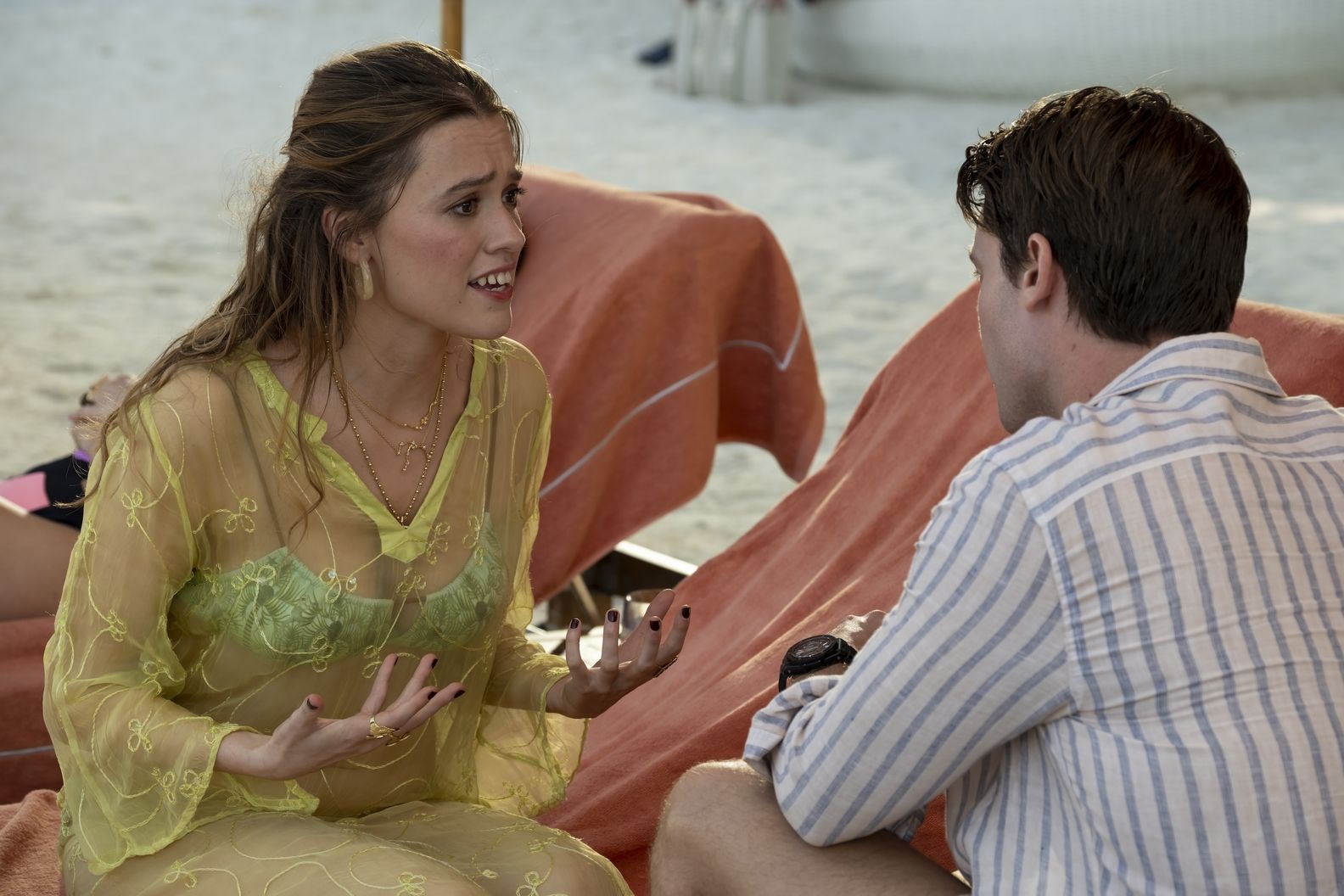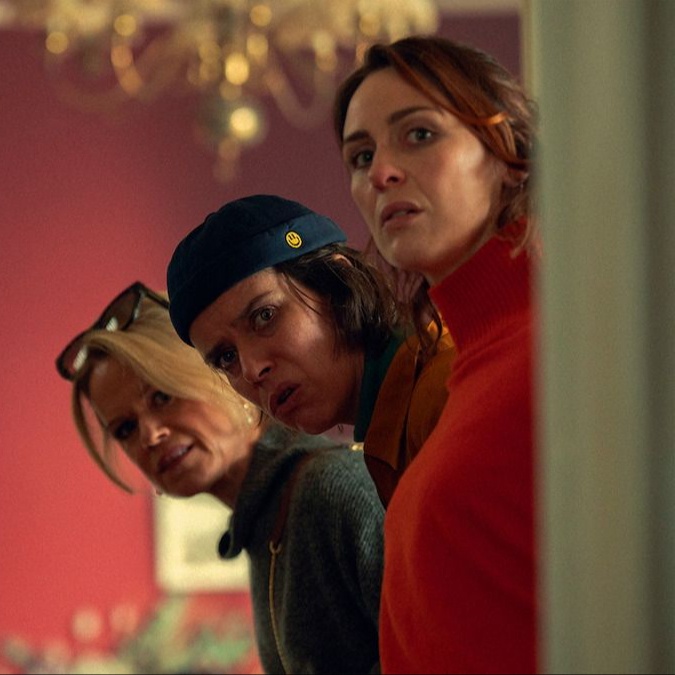Like so many of us, I watched season three of The White Lotus with a lot of patience and self-control. Until the very end, I gave it a chance. Was this possibly the most plotless script for a show as awaited as this? It was.
If you were planning to beat up or kill someone after being fuelled by half a century’s worth of angst and bloodlust, would you first (very helpfully) provide identification to the person you were planning to kill off? And then, even more helpfully, hang around your victim’s place of work so that their very murderous security detail could be spared the headache of finding you to exact revenge?
If you had changed your identity to evade an investigation into your partner’s very suspicious death that resulted in you inheriting an obscene amount of cash, would you (again, very helpfully) choose to live within spitting distance of the very brand that was smack dab at the centre of the said investigation?
If you were a hyper-masculine, rich, spoilt, 20-something horny man-child whose big lesson in manhood for his baby brother was guzzling protein shakes and the never-ending quest to get laid, would you not have some seriously messy psychological scars from doing sex things with said baby brother in a drug-addled haze?
If you suddenly found out that your closest friend stood at the opposite end of the political spectrum as you, would the shocking revelation lead to at least one charged confrontation before you merrily continued sipping your chilled cocktails?
These were just some of the questions on my mind as I slammed my laptop shut at 4.17am on Tuesday morning after binge-watching all eight episodes and 510 minutes of its runtime this week. Perhaps creator-writer-director Mike White was just enjoying the benefits of Thailand’s relaxed cannabis policies while writing season three.
I’m one of those giddy fans who waited the entire seven weeks and tiptoed around the internet so I wouldn’t accidentally catch spoilers. I muted group chats with close friends because I knew someone would inadvertently say something. I even binge-watched both the previous seasons for the fourth time and trawled through endless subReddits dedicated to discussing them, and only them, during the interminable 49-day wait… Such was my devotion to the satirical black comedy dedicated to lacerating the idiosyncrasies and narcissism of one-percenters—most new, some returning, all crazy.
So, yes, I was let down by this extraordinarily incoherent, largely plotless season, which felt more like Thai tourism porn than social critique. Over the last few days, I’ve rage-read interviews of White claiming he was forced to sacrifice plots and narratives for the sake of brevity. Maybe removing some monkey butt holes would have been a good start?
White has had this extremely grownup response to criticism: “Bro, this is the vibe… I’m world-building… I’m edging you! Enjoy the edging. If you don’t want to be edged, then get out of my bed… Don’t be a bossy bottom. Get the fuck out of my bed. Don’t come home with me. Don’t get naked in my bed.”
To me, that sounds like going to a restaurant, being served tiny morsels of inedible food, then being saddled with a massive bill, and when you complain, being condescendingly told that what you’re paying for is the vibe. But the fact remains: I’m hungry and I can’t eat this vibe of yours.

With screenplays, if you can’t set up a story in an engaging and detail-rich manner at the start, your audience will likely very quickly lose interest. Syd Field, an expert on structure in storytelling, wrote in his phenomenal book Screenplay, “Everything is related in a screenplay, so it becomes essential to introduce your story components from the beginning. You’ve got 10 pages to grab or hook your reader, so you’ve got to set up your story immediately.” This translates to what even content creators today seem to understand: the most important components of the story need to be established within the first five-odd minutes.
Before arriving at the third season, The White Lotus had two seasons and 751 minutes to build its world and vibe. And it did so exceedingly well. Fans had the contours of what to expect: Someone was going to die, we didn’t know who or how. Some very wealthy people would arrive at a very expensive resort in some difficult-to-access part of the world and over the course of the week attempt to sort whatever they thought needed sorting while being surrounded by a coterie of hired help to cater to every petty preoccupation.
What made the show so deliciously re-re-re-watchable was the tension between the crushing concerns of those that served (remember Lani from S1, who literally gave birth while on the job and then vanished altogether because her only value was what she could do to make the guests’ lives more comfortable?) and the cruel obliviousness of those at the receiving end of their services (like Tanya McQuoid, who abandons her promises to help her newfound friend Belinda set up her business the minute she meets a man in S1). The weight of everything that the working class had to constantly think about and navigate stood in stark contrast with the fleeting whims of the rich. You could almost hear the gnashing of the staff’s teeth as they smiled outwardly at their guests’ nonsense. And all of it was powerful enough to make you feel uncomfortable because who among us is not guilty of the crime of treating those who serve us like vehicles for our own needs?
The failings of S3 are shown progressively in how little the lives of the help and the guests intersect. In the real world, the paths of the rich and poor are inextricably linked and often crisscross, the effects of which are keenly felt by one side and barely registered by the other. In S3, the characters’ lives run parallel—never meeting, largely interacting with their own class of people. In the real world, a guest as horny as Saxon would, nine times out of ten, make life miserable for a worker as conventionally pretty as Mook and not even know it.
Of course, the crater-sized holes in every one of S3’s secondary and tertiary plots aside, there were sparks of brilliance and moments that carried real potential. All would have been forgiven if there had been even a cursory attempt to treat us to what happens when the tables are turned—suddenly, Belinda is rich, and the bratty Ratliffs are not. How will Mommy Lorazepam now make sweeping proclamations about the (lack of) decency of others now that her casual cruelty is not touched by wealth? Or even if the speculation of who will meet their watery grave was rewarded with an ending that wasn't quite so obvious. We're told White wrote six scripts for the ending to prevent leaks. And this was what they went for?
Sure, the show is artistically shot, with languorous shots of everything that makes Koh Samui a paradise, the music haunting (despite the eventual beef between White and composer Cristóbal Tapia de Veer), and the cast (sprinkled with the likes of Parker Posey, Walton Goggins and Natasha Rothwell) played its part. But in the end, none could save the show from its own hubris.
Perhaps Mike White and his fatuous script were imparting a valuable lesson to his numbed audience that had over-invested in the show, that the joke is on us: we, the fans, are the real victims of this season’s murder plot.




